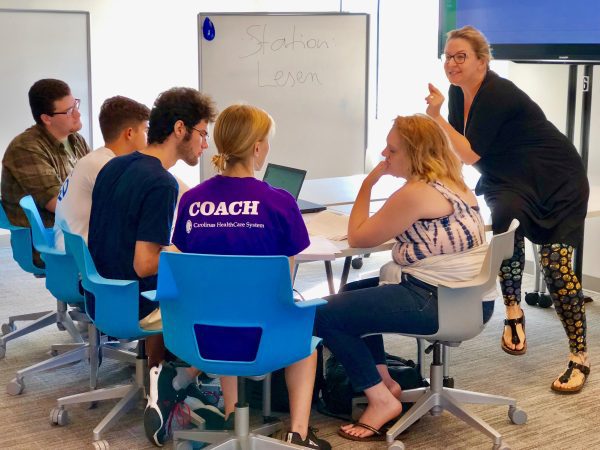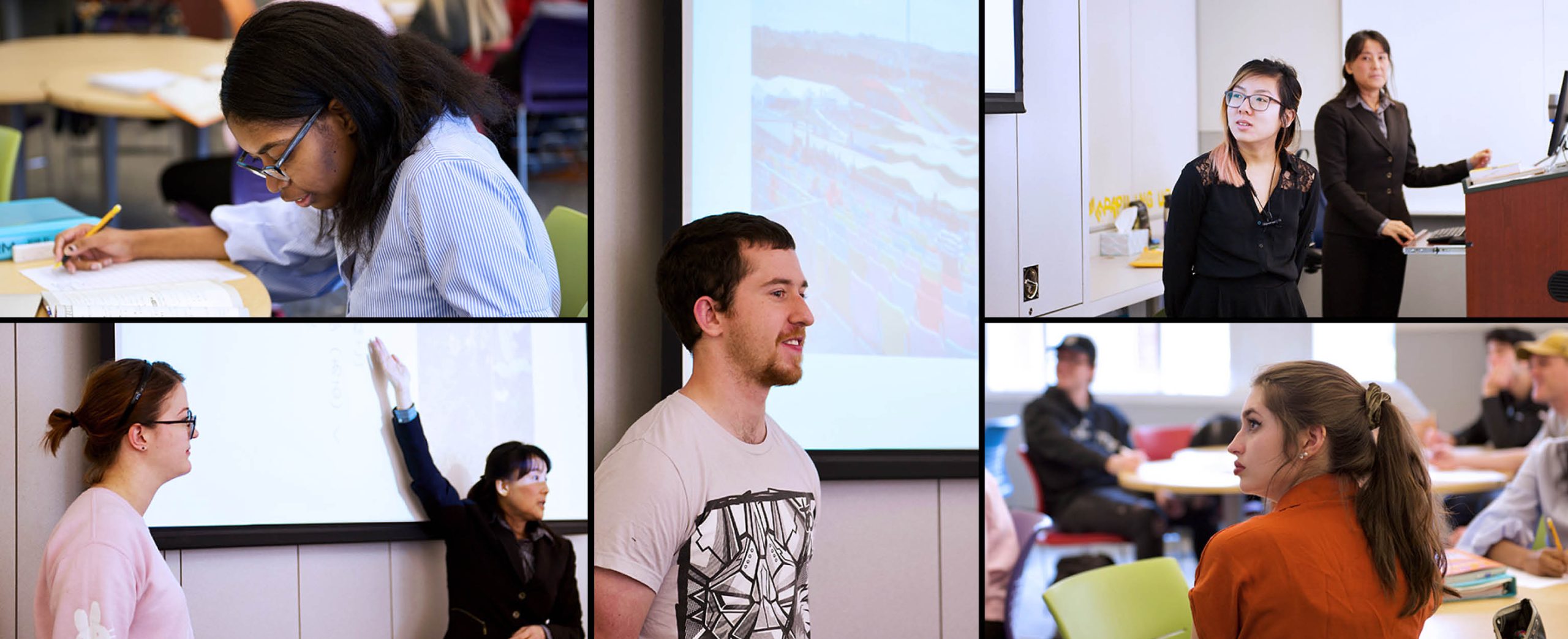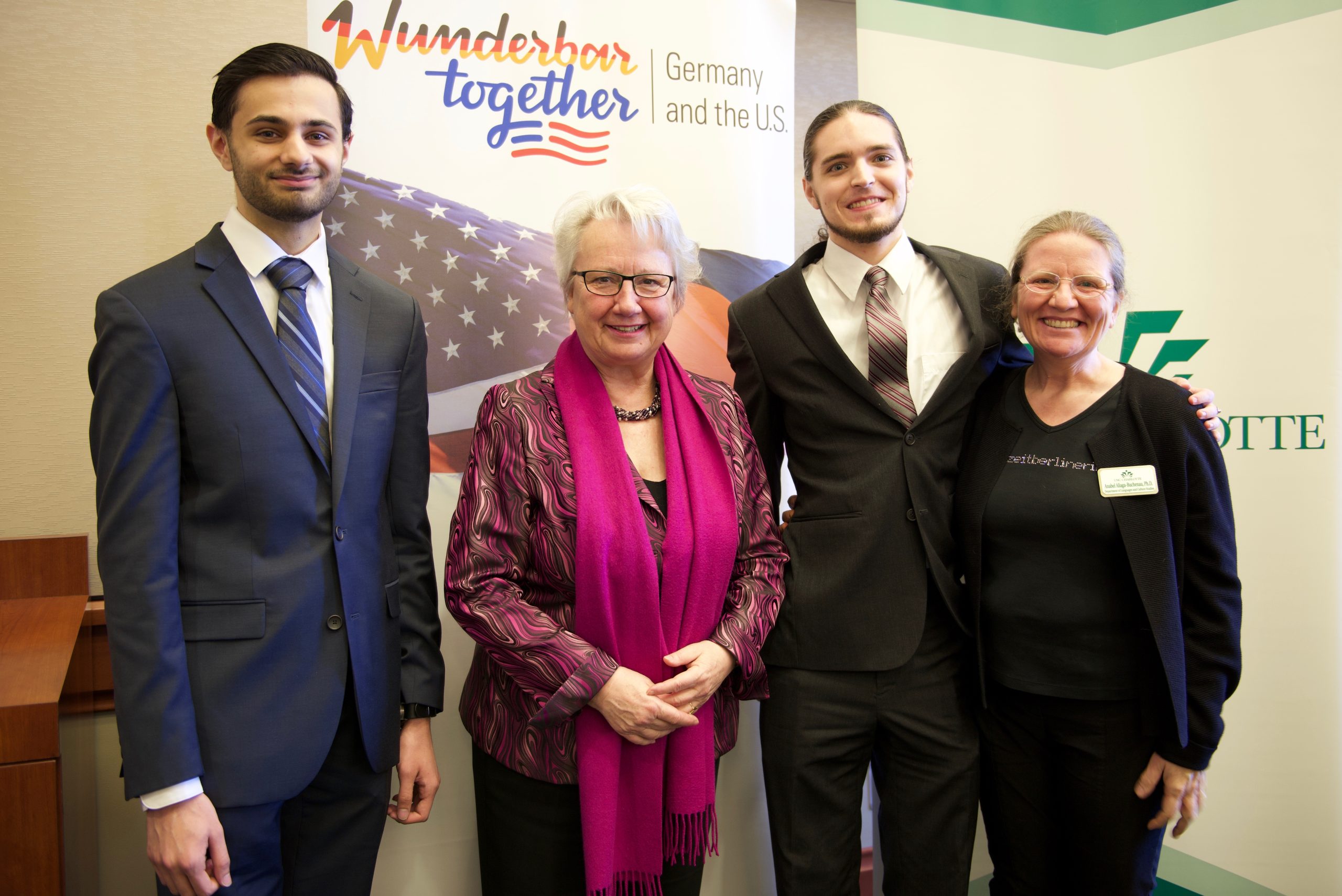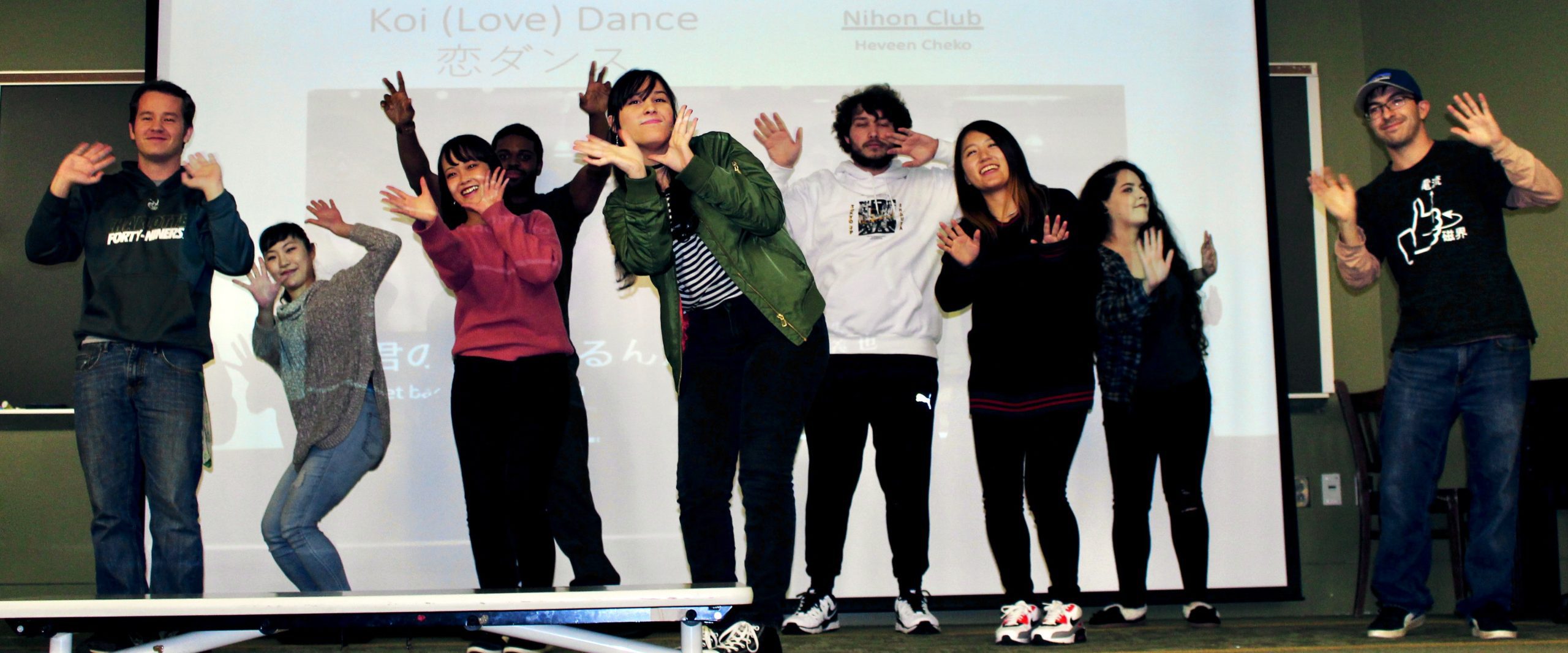German Studies, Japanese Studies Rank Among Top In Nation

UNC Charlotte’s German Studies and Japanese Studies are number two and four, respectively, in the nation when it comes to awarding undergraduate degrees.
The Chronicle of Higher Education published the rankings earlier in 2019, in an analysis of U.S. Department of Education data for the 2016-2017 academic year. The report considered public and private institutions that confer bachelor’s degrees in foreign languages, literatures, and linguistics, including first and second majors.
The national rankings speak to a concerted effort by faculty, staff, students and partners of the Department of Languages and Culture Studies to ensure that what students are learning is not only challenging, but also relevant, said Ann Gonzalez, chair of the department.
Shaping Studies To Meet Students’ Needs
“We have paid close attention to what our students need to be successful in an increasingly global world, and our focus has paid off in more students enrolling and graduating from our programs,” Gonzalez said. “We have shaped our curriculum and our students’ experiences to be responsive to the changing world in which our students will live and work. We also work as a tight-knit team to meet our students’ needs and also the needs of our partners, such as employers.”
For example, in addition to classroom learning, the department focuses on study abroad and internship opportunities, and expansion of the ability for students to double major, such as through a partnership with the Lee College of Engineering. Faculty closely mentor students, while partners such as the German Language and Culture Foundation offer scholarships.
Overall, the report listed UNC Charlotte’s programs in the top 3.5% – or 32 out of 926 institutions that were ranked – for undergraduate degrees awarded. The German major is in the top 1% of the 260 programs that were ranked among German language programs, while the Japanese major is in the top 5% of the 85 programs that were considered. In addition to German and Japanese, UNC Charlotte offers a Spanish undergraduate major, which ranks 21 out of 771 considered, and a French undergraduate major, which ranks 93 out of 465 considered.
The rankings are even higher when considered from a statewide perspective. UNC Charlotte’s German, Japanese and Spanish majors rank first among North Carolina institutions that were included, and French ranks fourth.

Students in Yukiko Yokono’s Japanese class present their Haiku poems, learning about the language and the culture.
Students say that their language and culture studies have led to the development of skills while broadening their understanding of themselves and others.
“Upon hearing that UNC Charlotte had a Japanese Studies major, I was immediately enthralled at the idea of majoring in such an exciting language,” said Logan Lampkins, who graduated in 2017 with degrees in Japanese Studies and International Studies. “In high school, I researched and found that UNC Charlotte was one of only a few schools in the state with a Japanese Studies major. I selected Japanese Studies as my major and never looked back.”
While at UNC Charlotte, Lampkins had set a goal of passing the Japanese Language Proficiency Test at a level of N2, to help him with his career aspirations. With the test, N1 is the highest level possible, reflecting a near-native level of proficiency.
“UNC Charlotte offers a large selection of study abroad opportunities, which allowed me to study abroad for an entire academic year,” Lampkins said. “The immersion in Japanese culture allowed me to develop my language skills, and I was able to pass N2 even before my study abroad experience ended. I achieved this much quicker than I expected, and I decided to aim for the highest level. Shortly after graduation, I moved to Japan, challenged the N1 and passed. With this accomplishment, I have now achieved the highest level of Japanese proficiency, and it is because of the excellent professors and academic resources I had access to while attending UNC Charlotte.”
Other students recount similar experiences, focusing on the opportunities they have found, and the people who have supported them.

Student Jacob Krevat (from left) with Annette Schavan, former German Federal Minister of Education and Research, student Mason Reynolds and Anabel Aliaga-Buchenau, Languages and Culture Studies Department associate chair.
“I dove into studying German head-on,” said Mason Reynolds, a senior computer science and German double major. “What really made me love it was how proactive the faculty were, and how much they cared about the students and accommodated them. What appealed to me was really everything – it was the study abroad and how willing faculty were to help students who wanted to study abroad, and how enthusiastic they were not just about their jobs, but also the success of their students.”
Reynolds has an internship lined up this semester in Germany. “I want to use the technical skills I get from computer science as well as the cultural and social skills I am gaining from studying German and combine them to work in Germany,” he said. “I’ll take those combined skills overseas and work internationally.”
Like Reynolds, senior computer science and German double major Jacob Krevat has found that technical and humanities studies have combined for a powerful learning experience.
“Computer science is a very technical field, and I was looking for a way to be sure I gained a broadened cultural awareness,” Krevat said. “The German major was something that put me in touch with a different culture, so I could better learn my own culture. The study of languages and cultures really gives people in the technical field a leg up, because not everyone in a technical field has this combination. Beyond that, in my personal life, it adds a lot of cultural value, and it helps me with my additional goals of traveling to Germany, learning more of the language and more of the culture.”
Vanessa Lee, a senior who graduates in May, became interested in Japanese language and culture at a young age. “My first encounter with Japan was my experience with my mom watching My Neighbor Totoro when I was 6,” Lee said. “That was the start of my interest in Japanese animation and culture.”
As a Japanese studies major at UNC Charlotte, she competed in the Duke Japanese Speech Contest and studied abroad in Japan. “Both of these experiences have improved my Japanese skills in different ways,” she said. “I had a chance to practice my speaking and listening skills when I was preparing for the contest, and I gained a lot of cultural knowledge through my study abroad experience. I also improved as a person by putting myself in an environment I have never been in with people I’ve never met. It was truly a life-changing experience.”

Students perform during a year-end presentation of the Japanese Studies Program.
Likewise, Brian Edwards has learned more than just another language in his classes at UNC Charlotte. As a Charlotte Engineering Early College student, Edwards has been taking Japanese classes at UNC Charlotte through the Early College, a joint project between Charlotte-Mecklenburg Schools and UNC Charlotte The early college model allows students the opportunity to take college courses at UNC Charlotte and courses to earn a high school diploma over a five-year period.
“Japanese as a whole has impacted the way that I perceive not just language, but also life in general,” Edwards said. “The most powerful thing that I have experienced at the university so far outside of improving my own Japanese skills and mindset is having the opportunity to witness other students’ journeys. What this has taught me is that any worthwhile undertaking in life is not only going to take many years to truly accomplish, but it is simply a life-long process of overcoming problems and refining who you are.”
The Department of Languages and Culture Studies also offers undergraduate minors in Chinese, Classical Studies, Francophone Studies, French, German, Italian, Japanese, Russian and Spanish. It offers its Honors Program across the languages and has two early entry programs: Languages and Culture Studies: Translating, Graduate Certificate; and the Spanish master’s degree, early entry. The department offers undergraduate certificates in Business Languages, German for Engineering, Hispanic Literary Studies, and Translating.
Top image: Susanne Gomoluch (right) teaches a German language class.
Words: Lynn Roberson | Images: Bobby Hobgood, Lynn Roberson and Courtesy of the Department | Story Research: Skylar Case, College Communications Office student assistant